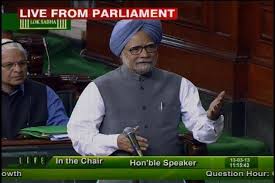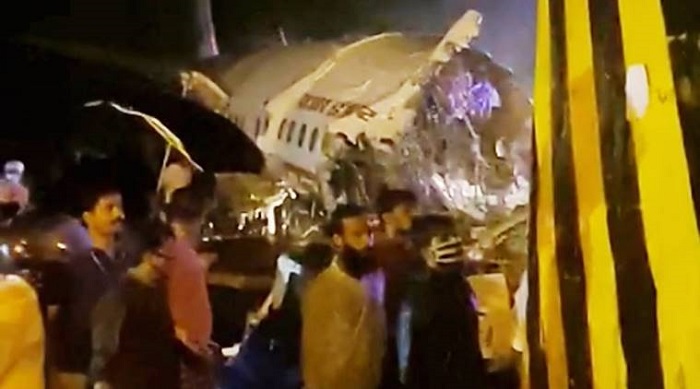New Delhi, Feb 21: Addressing parliament for the last time, Prime Minister Manmohan Singh Friday said the general elections would give people an opportunity to form a new sense of consensus that would take the country on to new pathways.
Singh said the Indian parliament, despite differences among members, has the capacity to rise above partisan strife on key matters.
Singh, who announced he will not seek a third term in office in case the United Progressive Alliance (UPA) is voted to power, said the passage of the bill on Telangana was an indication that the country is capable of taking tough decisions "without any rancour and without worrying too much about the pros and cons".
In his address, the prime minister said that in parliamentary proceedings there are bound to be differences among parties, "but there must also be ways and means to bring pathways, to bring minimum amount of consistency and reconciliation" so that matters can move forward.
He said he has witnessed that on crucial matters parliament "has the capacity and the will to rise above partisan strife and find pathways of national reconciliation...
"The manner in which the state of Telangana is being born is another indication that this country is capable of taking some of the most difficult decisions without any rancour and without worrying too much about the pros and cons about the things that do not matter. And we can take pride in the fact that the state whose quest of being born was pending for the last 60 years is ultimately seeing the light of day".
The prime minister said the landmark food security bill would create hope among the deprived sections and encourage farmers to produce more.
He said the country was entering a phase where the people would have an "opportunity to pass their judgement" on the achievements and weaknesses of the government and a "new sense of consensus will emerge that will carry the country to new pathways".






Comments
Add new comment